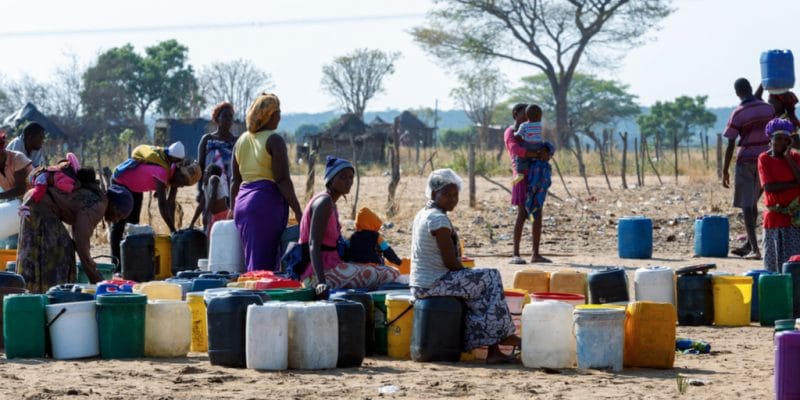The Omusati Regional Council in northern Namibia has commissioned two taps for the Omunkuzi and Okathakanguti villages. They will serve more than 1,600 people and livestock.
Omunkuzi and Okathakanguti are two small villages located in the Omusati region of northern Namibia. Water is scarce in the area. Despite a semi-desert climate, 1,640 people have built their habitats in a flat landscape. With the upcoming dry season, people and livestock need to tighten their belts more. 20 km further north is Etunda Irrigation Project. Women could collect water from this agricultural pipe. But the distance is unfortunately way too long.
So they have to do things differently. “We are used to travel long distances to fetch water from a borehole in one of the livestock stations in the south of our villages, mainly with donkey carts,” says Petrus Uyage, the chief of the Omunkuzi village. The situation has been ongoing since the independence of this southern African country in 1990. However, in November 2018, the Omusati Regional Council set up a drinking water supply project that led to the construction of two taps.
They were recently commissioned during a ceremony that brought together representatives of the Omusati Regional Council and the villagers. “Today, we believe that our government has finally relieved us of the burden of searching for water,” says Petrus Uyage. But it is not just a government project. In Omunkuzi and Okathakanguti, everyone joined hands. The villagers managed to contribute N$5,000, the equivalent of US$362.
According to Andreas Shintama, a member of Omusati Regional Council, the villagers’ money was used to finance the purchase of materials for the project, including equipment for the construction of a 7 km pipeline. The regional council was responsible for setting up teams to pump water from the groundwater table.
Andreas Shintama acknowledges that “the government has a great responsibility to provide basic services to the country’s communities and the first priority here was to provide safe drinking water to these two villages”. The local population is satisfied with the two water points, especially as they will reduce a number of waterborne diseases, promote livestock farming and thus the development of Omunkuzi and Okathakanguti.
Jean Marie Takouleu







